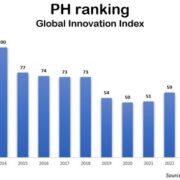Philippine Ambassador to Japan, Jose Laurel said Japan’s continued interest in the Philippines will help the country in its recovery efforts to rise from the coronavirus disease 2019 (Covid-19) crisis, further noting that Japanese firms remain confident on investing in the Philippines.
“Based on my experience as Philippine ambassador to Japan, I can see that the Japanese continue to be excited about doing business in the Philippines. They see the Philippines as a lucrative market for Japanese products and services,” Laurel said at the Philippines-Japan Business Investment Virtual Forum 2020 organized by the Nikkei Group Asia.
Highlighting Filipino workers as being highly regarded for their skills, this makes the Philippines as an attractive destination for Japanese investors said Amabassador Laurel.
Laurel also cited a study by Japan External Trade Organization (JETRO) indicating that as of 2017, around 1,502 Japanese companies were operating in the Philippines and employing some 320,000 Filipinos.
60% of these Japanese firms are export manufacturers. They exported USD13.3 billion worth of products, accounting for 26 percent of Philippine merchandise export back in 2017, the envoy added.
During the official visit of President Rodrigo Duterte to Japan back in May 2019, the Philippine delegation bagged 26 business deals amounting to USD5.5 billion.
These business agreements are expected to create 82,737 new jobs.
In the same event, Trade Secretary Ramon Lopez urged Japanese firms to look for opportunities in the Philippines as the government pushes for its industrial strategy to recover from the pandemic, the REBUILD PH or “Revitalizing Businesses, Investments, Livelihoods and Domestic Demand”.
Lopez said the program aims to jumpstart and reinvigorate the economy by revitalizing consumption and enhancing production capacity.
He added the Philippines is also poised to exhibit a V-shape recovery after the pandemic.
“The Philippines is a strategic partner for Japan in the manufacturing industry for electronics, automotive, aerospace and chemicals. Other preferred areas are in the manufacture of healthcare products such as medical devices, personal protective equipment like surgical masks, medical coveralls, pharmaceuticals, food, packaging, and construction materials like iron and steel including cement,” Lopez said.
Japanese firms may also explore opportunities in services such as animation, as well as engineering and architectural design, and other areas like logistics, smart manufacturing, electronic design services, and Internet of Things (IOT).
“We are excited as well for prospects in terms of future collaboration with Japan in video game development, software development, conventional and renewable energy, retirement infrastructure like retirement villages, and smart city development,” he added.





